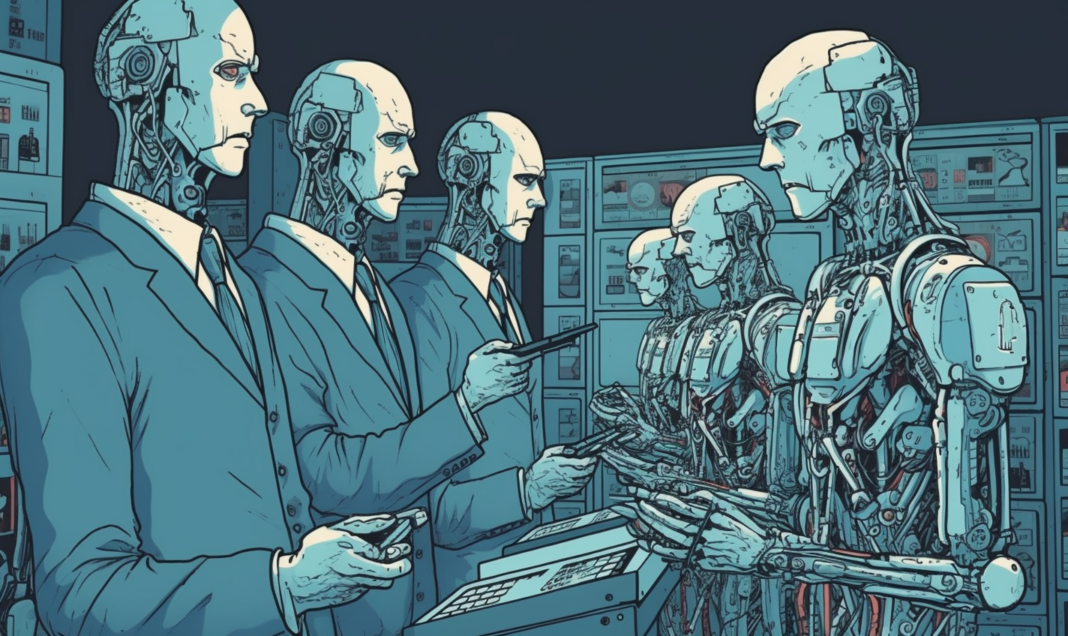Bill Gates, a name synonymous with tech visionaries, has often been a harbinger of technological transformations. His prophetic vision of a personal AI, reminiscent of the AI butlers found in science fiction, is finally on the horizon. This impending future, poised to revolutionize the landscape of SEO and e-commerce, beckons marketers and creators to reimagine their strategies. As the tides of change gather momentum, the clarion call is clear: adapt now or risk irrelevance.
In a candid conversation with VentureBeat, Jeremiah Owyang, a founder, investor, and industry sage, unveils the intricacies of this forthcoming era. Gone are the days of conventional SEO tactics that aimed to conquer search engine algorithms. Now, a new realm beckons, one that demands optimization for AI agents and foundational models. Owyang asserts that staying ahead of the curve requires planning for disruption and devising innovative strategies that resonate within the AI ecosystem.
The very foundations of advertising models are poised to crumble, asserts Owyang. In a landscape evolving at warp speed, he envisions a future where traditional advertising, designed to channel audiences towards websites, falls by the wayside. As AI agents and foundational models rise to prominence, advertising dollars will find new avenues, with marketers vying for inclusion within the generated responses of AI agents. Picture a world where “sponsored sentences” take center stage, interwoven seamlessly with AI-generated content, blurring the lines between advertisement and information.
Intriguingly, Owyang challenges marketers and creators to transcend their comfort zones. The quest for visibility must extend beyond the confines of conventional search engines and encompass the very fabric of AI ecosystems. Embracing a paradigm shift, Owyang emphasizes that the future lies in being discovered within AI agents themselves. Herein lies the crux of the matter: the transition from shaping search engine results to influencing AI agents.
The advent of OpenAI’s web crawler heralds a new era, yet Owyang forecasts its inefficacy in a world where GPT tools become the new gateway to information. With consumers gravitating towards AI-powered information sources, the challenge looms large: how do chatbots acquire their data, and what implications does this hold for businesses aiming to stake their virtual claim?
The answer lies in an unexpected twist—an inversion of expectations. Owyang challenges us to embrace the idea of actively training large language models (LLMs) on our data. Comparing it to a journalist eager to have their articles ingested by LLMs, he envisions a future where every chatbot, powered by various foundational models, serves as an autonomous agent interacting with buyer-side agents. Just as SEO strategies enabled websites to top search engine rankings, these new strategies would position brands at the forefront of AI-generated interactions.
Surprising as this concept might be, Owyang reassures us that the history of marketing is replete with disruptions. From the inception of Google search to the inclusion of content creators and influencers, marketers have adapted and thrived. Now, AI emerges as the next disruptor, reshaping the very nature of influence. No longer confined to the realm of human influencers, the battlefront extends to AI agents, transforming marketers into architects of AI behaviors.
Bill Gates, a pioneer in his own right, lends his weight to this vision. During a Goldman Sachs and SV Angel event on AI, Gates highlighted the significance of personal AI agents in disrupting SEO. A statement that has translated into action, as evidenced by investments in Inflection AI, a company at the forefront of the AI revolution.
Inflection AI’s Pi, short for “personal intelligence,” embodies this vision. Pi takes a more personal, emotional approach compared to its counterparts like ChatGPT, emphasizing the role of emotional intelligence alongside cognitive prowess. With the introduction of Inflection-1, a potent LLM, the stage is set for AI agents that resonate at a deeply personal level.
AI Engine Optimization emerges as the beacon for the future. A radical departure from conventional SEO, it ushers in a new era where APIs become conduits for real-time information streaming into foundational models. In this age of immediacy, where users consult AI agents before search engines, the demand for real-time feeds is palpable. Simultaneously, marketers are urged to embrace the power of training their own branded AI, an entity that interacts with consumers and buyer-side agents seamlessly.
As brands embark on this transformative journey, the possibilities are boundless. At a recent AI conference, corporate and government leaders converged with a shared mission: harnessing the potential of LLMs for personalized interactions. A future beckons where every brand wields its autonomous agent, engaging in negotiations, making choices, and curating experiences tailored to individual tastes and preferences.
As we stand at the crossroads of disruption, the message is loud and clear: marketers must evolve. AI Engine Optimization transcends mere adaptation; it calls for a profound shift in perspective. Beyond shaping human decisions, the new frontier entails shaping AI behaviors. In this age of rapid change, where AI wields influence akin to human influencers, brands that fail to heed the call may find themselves relegated to the annals of obsolescence. The future is upon us, and those who seize it will forge a new reality—one where AI agents are not just tools but genuine partners in shaping our choices and experiences.




